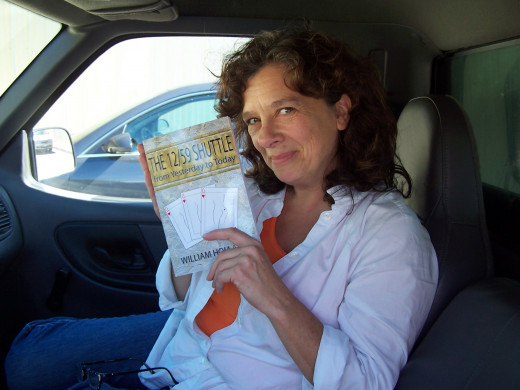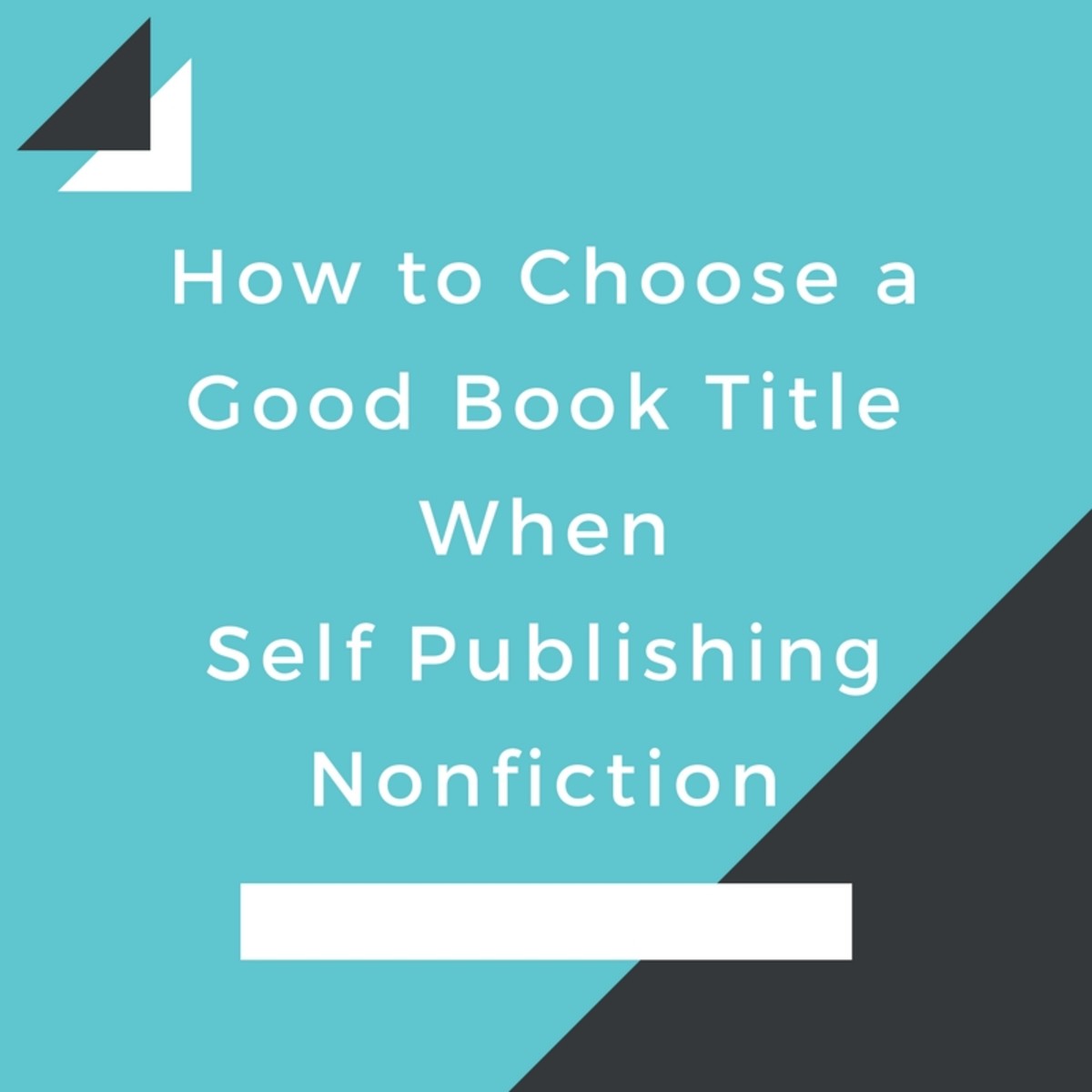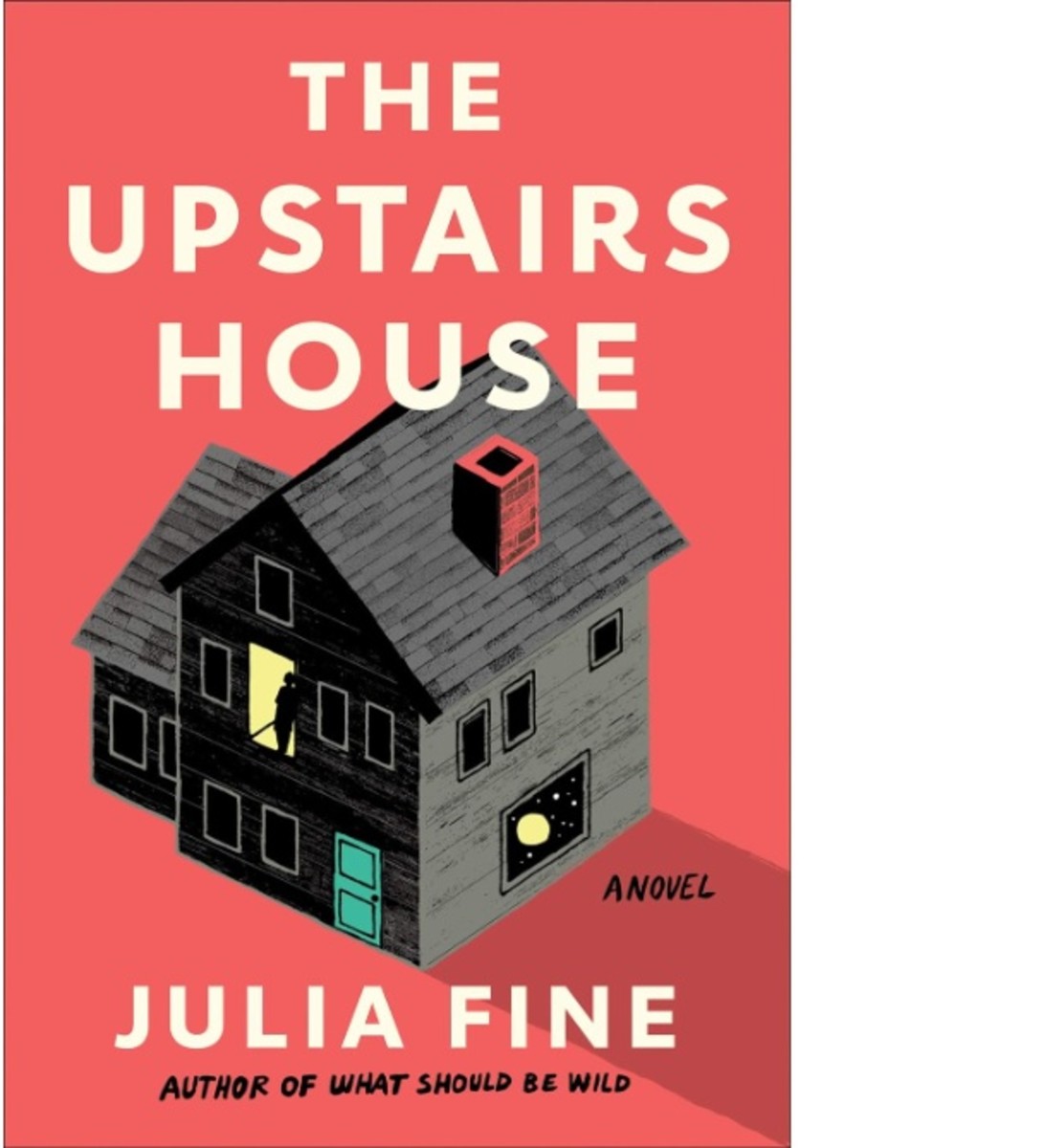Choosing the Perfect Title for your Book
A Matter of Seconds
How would you like it if you wrote a 100,000 word novel and it was rejected in two seconds without ever being read?
If you think that example is extreme then think again.
Editors and publishers are almost as concerned with the title of a book as they are with the book itself, and that is because we live in a fast-paced world. We are bombarded by sound bites, little snippets of advertising, little glimpses of shows, all designed to attract us in the shortest amount of time. That, my friends, is what a book title does. It is a writer’s opening salvo, and it will either score a broadside hit, or fly ineffectually into the water.
Not only are editors and publishers subject to the five-or-ten second rule, but so are readers. Think about the process when you are shopping for a new book. What is the first thing you see? You will either first see the title or you will see the book cover. If you are interested after seeing those two parts of the book, you will then read the synopsis to see if you are interested and then, and only then, will you actually open the cover and read the first few paragraphs.
All of this leads to an ironclad rule: your book title better be damned good.
With that rule in mind, let’s take a look at some things to consider so you can decide upon the best possible book title.

My Own Experience
I happen to be going through this right now with my new novel. I began with a working title of “A Season for Killing.” I then moved on to “The Shadow Man,” and now I’m working with “Shadows Kill.” I have no idea what I will end up with, but I understand that this is a process that needs to unfold at its own pace.
As I get further into the book, I’m sure the working title will change several more times. The reason for this is because I will know the book better the further along I get, so I will have a better understanding of important points by the time I actually settle on the final title.
The suggestions that follow are not etched in stone. They are things to consider based on the advice of others in this business, but like all advice, they may or may not work for you. Still, remember that the points that follow are considered important by editors and publishers.
SHORT IS BETTER
This is no time for wordiness. You need to capture the spirit of your book as quickly as possible. It is suggested that the title be no more than 30 characters in length. Three words is ideal. And while you are at it, make those three words catchy and memorable. Talk about Mission Impossible!
HIT YOUR TARGET
The title must suggest what the book is about; this is not an easy task in three words, but it is necessary. Remember, you are trying to sell your book before the reader even opens it. Readers must be able to relate to your book, and that must happen immediately.
PAINTING A PICTURE WITH WORDS
Your title should paint a scene in the minds of future readers, or it should grab hold of their emotions in some way. When they read your title they should instantly have a picture in their mind of what your book is about.

NOW IS NOT THE TIME TO PUNCTUATE
Save your punctuation for the body of the book. Three words, or thirty characters, does not allow for punctuation. Leave out question marks and exclamation points….hell, leave out commas. Do your job properly and you won’t need them.
BE ACTIVE
You are trying to take readers captive with your title, so use the active voice. If you are confused by active and passive voices, consider these two sentences.
The possum bit the young boy.
The young boy was bitten by the possum.
In the first example, we have an active voice. In the second, passivity rules the day.
In my earlier example of my current working title, “Shadows Kill” is an active voice. If I wanted to slip into passive, which I have a tendency to do occasionally, my working title would be something like “Killed by a Shadow.” It is a fine distinction but an important one.
CHECK ONLINE FOR SIMILAR OR EXACT TITLES
Interestingly, there are no copyrights on titles, so you won’t get into legal trouble if you use the same title as another published book, but you will risk confusing a whole lot of people by doing so.
Go online and check with Amazon or some other source to make sure your title has not been used. I do a simple Google search before settling on a final title. It just makes good sense to do so. If five other authors have books called “Shadows Kill,” then I just ruined my chances of being unique.
TOSS “HOW TO” TO THE JUNKPILE WHEN TITLING YOUR BOOK
“How To” is wonderful if you are writing articles for online publication. Search engines love “how to,” but your book title is not designed for search engines. Remember our rule about passive voice? “How to” is passive by its very nature, and editors and publishers are not fond of the phrase.
Instead of a book title like “How to Make Money Quickly,” you should consider “Making Money Quickly.”
Tips for Choosing the Perfect Title
There is no perfect way to go about this process. What works for me may not work for you. Some writers do not name their manuscript at all until they are done. Some, like me, keep changing the title as they write. Whatever floats your boat is the process you should use.
To get the process started, though, try brainstorming using some of these ideas:
- A key word that repeats through the story or book
- The name of your main character or an important place in the plot
- A word or phrase that has a hidden meaning that is revealed in the book
- An expression that is related to the subject matter of your book
- Try using a play on words
- A word or phrase that suggests a category for a series. One author that comes to mind instantly is Sue Grafton and her alphabet mystery series.
Once you have brainstormed, you might have several candidates to pick from. Now it is time to turn to your friends and peers for help. Have people you trust read your manuscript and then give them possible names to choose from. In other words, do a marketing survey. At the same time, ask those friends if they can suggest a better name. The title for my last novel, “Resurrecting Tobias,” came from using this method.
Join me on my writing site
- William Holland | Helping Writers to Spread Their Wings and Fly
Tips and discussions about writing

And After All That Is Done…..
Well, after all that is done, you choose a name and then pray to the writing gods that the planets will align perfectly.
What do you want from me….guarantees?
There are none!
We do the best we can with the information before us, and then we hope for the best. Welcome to the world of writing.
2014 William D. Holland (aka billybuc)
“Helping writers to spread their wings and fly.”









